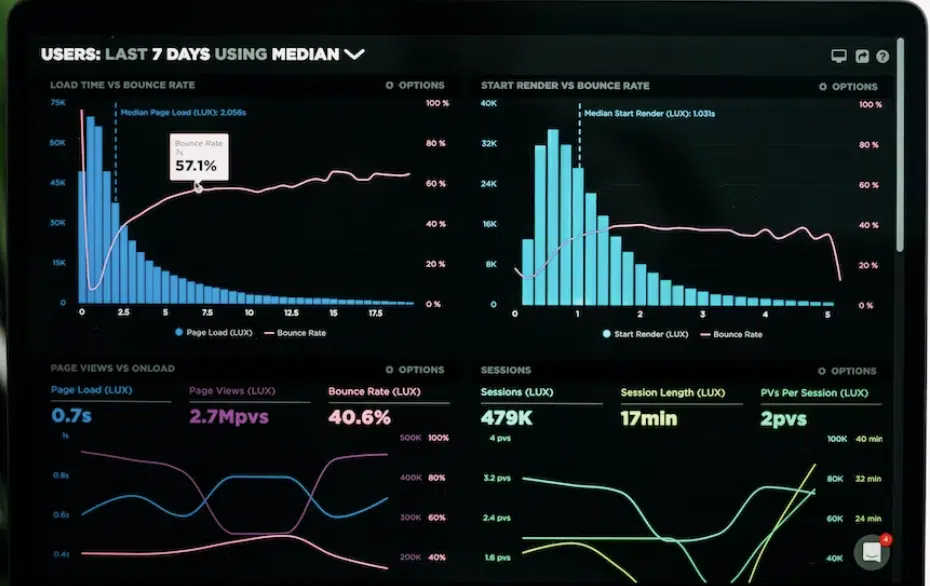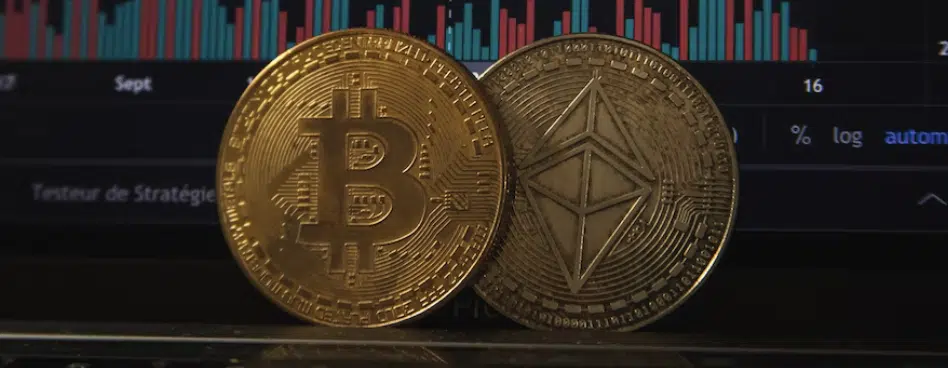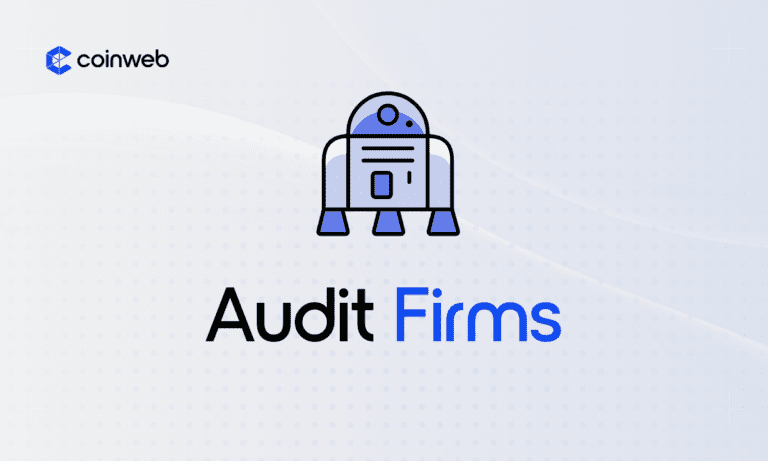TLDR
In this comparison, we have compiled a list of the industry’s best smart contract audit companies.
Smart contract audits are vital for crypto security. High-quality audits from reputable firms help identify bugs, demonstrate a protocol’s safety commitment, and protect users. Not all audit firms are equal, though. The best smart contract auditors have a proven track record and engage with the safety community.
No audit firm can guarantee 100% that a protocol will never be exploited, as every code has a risk of bugs. However, top-tier audit firms employ highly skilled teams that conduct thorough reviews.
We will in the following discuss the critical aspects of smart contract audits and what due diligence should be performed before interacting with smart contracts.
What Are Smart Contracts?
Smart contracts are agreements that encode the terms into code and replicate them on a blockchain network, enabling them to self-execute without requiring a third-party intermediary.
The parties involved only need to reach a consensus, and the contract will execute itself. By automating the process, smart contracts reduce the risk of errors, fraud, and misunderstandings, thus facilitating, validating, and carrying out the negotiation or performance of a contract.
After these smart contracts are in place, they are uneditable and cannot be altered. Thus, these smart contract audits are critical to carefully examine the code to detect bugs affecting the project’s functionality.
The primary goal of a smart contract audit is to optimize the code and improve its integrity. In a smart contract audit, developers carefully review the contract’s source code, line by line, to identify potential security loopholes. If any faults are found, they are rectified and fixed to reduce the potential risks and enhance their quality.

Smart Contracts Usage in Crypto
Smart contracts are essential to the crypto ecosystem, automating various financial transactions like lending, borrowing assets, issuing new tokens, and creating decentralized exchanges. They also enable the prevention of asset transfers for a specific time.
The source code for many prominent protocol smart contracts is often available on GitHub, which allows users to inspect the code and verify its integrity. With an experienced team, users can research and review the terms of the smart contract.
This can help build trust in the contract and its underlying blockchain, as well as help identify any potential vulnerabilities or weaknesses. Smart contract evaluation promotes transparency and inclusivity, encouraging greater participation and innovation in the cryptocurrency ecosystem.

Why Are Audits Required?
Smart contracts have become a popular way to secure transactions on the blockchain. However, not everyone can quickly analyze, dissect, and test smart contracts for potential issues. This is where smart contract audit companies come in handy.
These companies specialize in reviewing the security of smart contract codes within a specific protocol. They aim to ensure no security issues or potential bugs hackers could exploit.
It’s important to note that smart contracts are often open-source, making it easier for bad actors to exploit bugs or issues within the code. This is why having a reliable, experienced external auditor specializing in blockchain technology is crucial.
The audit report is an essential outcome of the audit process, and it provides detailed documentation of all findings, including identified issues, recommended solutions, and actions taken. This helps investors understand the security and reliability of the smart contract they’re investing in.
Any mistakes or inconsistencies in the code could result in unintended outcomes, causing crypto investors to suffer significant losses. Therefore, having a trustworthy and reputable smart contract audit company is crucial to ensure the code is free from potential risks.

Types of smart contracts audits
Smart contract audits can be classified based on the project’s nature, status, or scope. Here are some types of audits:
New audit
Before launching, a new audit is conducted to examine a smart contract. A new audit is typically performed when creating a smart contract for a project about to launch. The main goal of this pre-deployment audit is to determine and effectively resolve any potential flaws or defects before the contract code is deployed.
A new smart contract audit includes multiple steps, including a security audit, functional audit, compliance audit, and code review. This approach helps ensure that the smart contract works as intended and is secure, compliant, efficient, and trusted by millions of users.
Pros
- A new audit can help identify potential security vulnerabilities in the code, which can be fixed before deployment.
- A smart contract audit increases confidence and draws attention to a project’s transparency, security, and accountability.
Cons
- A new audit can be time-consuming and costly, especially if the code is complex or requires significant review.
- Even with a thorough audit, there remains a chance of undiscovered weaknesses that harmful individuals could exploit.

Repeat audit
A repeat audit is performed when an updated version of an existing project is created. Its primary goal is to evaluate any new changes, updates, or modifications to a smart contract. The goal is to ensure that any changes made to the contract do not result in new security exposures or negatively affect the performance.
Repeat auditing smart contracts with headers helps identify any potential security vulnerabilities that may have been missed during the initial audit. Typically, a repeat audit includes a code review, security assessment, and functional evaluation.
Pros
- By analyzing the headers of previous versions of the contract, auditors can verify that the changes made to the code are safe and secure.
- Repeating smart contract auditing with headers enhances transparency and accountability.
Cons
- Depending on the complexity of the code, a repeat audit can be as expensive as a new audit.
- Repeated audits may not always find new vulnerabilities if the previous one was comprehensive and addressed major concerns.

Fix audit
After the development team has identified and fixed any issues, a fixed audit is performed to confirm that the patches implemented in the smart contract effectively address the identified flaws and do not introduce any new vulnerabilities.
This type of audit is conducted whenever a smart contract undergoes updates. A comprehensive audit ensures the smart contract is thoroughly tested, meets regulatory and compliance requirements, and prevents legal and financial penalties.
Pros
- One of the advantages of a fixed audit of smart contracts is that it provides a precise cost that the project can expect.
- Planning and budgeting are easier with limited resources, and costs can be avoided.
- A fixed audit typically comes with a well-defined scope of work that outlines what will be reviewed.
Cons
- Fixed audits are inflexible, making it difficult to adjust to changes in project requirements.
- It is possible that a fixed audit may not uncover all potential issues or vulnerabilities in the code.

Retainer audit
Organizations may opt for a retainer audit to evaluate the security of a smart contract on an ongoing basis. This involves retaining an auditor who periodically examines and evaluates the smart contract. Doing so can quickly identify and address any potential issues before they escalate.
Retainer audits can be more cost-effective than one-time audits because the project team pays a fixed fee for ongoing support rather than separately paying for each audit. This can result in cost savings over time, especially for projects that require frequent audits or updates.
Pros
- Performing a retainer audit offers constant assistance to the smart contract, benefiting long-term projects.
- It ensures that the platform remains secure and functions optimally even as the project undergoes growth and evolution.
- Retainer audits provide access to a team of expert auditors familiar with the project and can guide on improving smart contracts.
Cons
- Retainer audits require a long-term commitment, which may not be suitable for all projects.
- Retainer auditors may become too closely aligned with the project team and lose objectivity over time.

Incident audit
An incident audit is conducted in response to a security breach in a smart contract. The objective is to analyze the incident’s root cause and detect any weaknesses that may result in comparable assaults in the future. This involves analyzing the smart contract’s code, system architecture, and other relevant factors.
The audit team will propose solutions to address the vulnerabilities and prevent future incidents. Overall, the incident audit is crucial in improving the security of smart contracts by identifying potential security flaws and implementing measures to mitigate them.
Pros
- An incident audit can help identify vulnerabilities that may have led to the security incident.
- By addressing the vulnerabilities identified during the incident audit, the overall security of the smart contract can be improved.
Cons
- Conducting an incident audit is a thorough process that involves investigating the root cause of a security breach.
- It can take considerable time and require external auditors, making it costly. However, it is essential to ensure safety and security.
Factors to consider when selecting a smart contract auditing Company?
Selecting an audit company to evaluate your smart contracts can be daunting. But we will help you make the decision smoother by discussing the factors to consider.
Types of Projects
Examining their portfolio is crucial to finding the top smart contract auditing companies. Evaluating their past projects or platforms can help determine their capabilities and experience.
It is essential to check if any of their previous projects have been hacked or compromised regarding security. Furthermore, their track record can demonstrate their ability to handle audit requirements for large projects.
By reviewing their portfolio, you can filter out the best smart contract auditing companies and ensure that you choose a competent auditor to review your smart contract comprehensively.

Range of Audit Expertise
When looking for smart contract auditing companies, it’s crucial to consider their expertise. While most auditors provide services for Ethereum contract audits, finding auditors with specialized skills to audit projects on other blockchains such as Polygon, Solana, Avalanche, BNB, and Fantom can be challenging.
Auditing EVM-compatible chains requires dealing with different architectures. Additionally, some blockchain networks use programming languages other than Solidity, such as Rust. Therefore, ensuring that the auditing company you choose can address your specific smart contract audit needs is vital.
Check the company’s portfolio to see if they have conducted audits on protocols based on the blockchain you’re interested in if the audit company does not deal with protocols based on blockchains other than Ethereum.
Methods and Approach for Audits
When looking for the most popular smart contract auditing companies, it is crucial to check their approach and methodology. You should verify the type of methods and approaches followed by the audit firm and inquire about the workflow recommended for smart contract audits.
The complexity of smart contract audit jobs can vary considerably, and choosing a company that is prepared for any challenge is essential. Comprehensive audits can be particularly complex and require longer durations, additional costs, and special efforts from auditors.
Therefore, you need to ensure that the audit company has a clear workflow for your smart contract audit requirements and can provide an assured answer to any questions before proceeding.

Quality of Audit Reports
The quality of audit reports is a clear indicator of the effectiveness of top smart contract auditors.
Moreover, these reports serve as comprehensive documentation of all findings from the audit process, including significant highlights of the project, identified issues, recommended solutions, and actions taken.
The reports present technical details structured and concisely, making them easy to comprehend.
How are Smart Contract Audits Carried Out?
A few steps are involved when a smart contract auditor evaluates your smart contract. Let’s discuss them briefly for a better understanding.
Preflight checks
One method when auditing and testing smart contracts is manually reviewing the contract code and algorithms. Smart contract auditors go through the code meticulously to analyze it. Automated tools and techniques are utilized in more advanced audits to identify and rectify errors.
Simulating Tests
Simulating and executing smart contracts in a test environment is another method to audit and test them. This approach can help identify potential issues and problems that could occur later on.
Moreover, it provides valuable insights into the performance and reliability of the smart contract before its implementation.
In the Live Environment
Smart contract auditors can conduct tests to ensure that a smart contract functions as expected once deployed. This typically involves deploying the contract on a blockchain network and conducting transactions with real users to verify its behavior.
By using a combination of manual and automated techniques and conducting tests in various environments and with different data, auditors can verify the correctness and integrity of a smart contract. This process can help improve the performance and reliability of the smart contract.
Good Actors
Besides smart contract auditors, cybersecurity experts and ethical hackers also play a significant role in auditing smart contracts.
They actively seek ways to improve contracts and provide verification services, sometimes even for free, to safeguard the community or win bounties contract creators offer.
What is the Importance of Smart Contract Audits?
Smart contract audits are essential to ensure the security of DeFi protocols against unwanted attacks. Auditing involves analyzing the smart contract code related to a specific blockchain project, followed by drawing up reports about the findings from the assessment.
The most popular smart contract auditing companies could help you evaluate the contract code to avoid any discrepancies arising after deployment on a blockchain network.
Once the smart contract code is deployed, it cannot be changed, and any vulnerabilities in the code can be exploited. With the introduction of new protocols, the DeFi domain has been growing consistently, along with its audience.
Therefore, choosing the best smart contract auditors is crucial to ensure careful assessment of smart contracts in DeFi protocols.
Security
The primary reason to search for a list of smart contract auditing companies is to ensure security. Smart contract audits help identify critical issues that could risk user funds and ensure that the contract takes necessary steps to resolve these problems. However, audits cannot completely eliminate all risks associated with a protocol.
While auditors conduct frequent in-depth reviews to uncover prominent issues, it’s important to remember that an audit cannot guarantee the complete safety of a smart contract from vulnerabilities. Nonetheless, quality assurance for smart contracts plays a crucial role in achieving security objectives.

Trust
Selecting top smart contract auditing companies can provide several benefits, including increased security and improved trust. Auditing can identify critical issues and help resolve bugs that may jeopardize user funds, although it cannot guarantee complete safety.
Auditing can also foster trust among the crypto community and potential investors. Third-party auditors are also helpful for implementing significant upgrades to existing contracts.
Despite the importance of auditing, finding the right company can be challenging, and developers must continually strive to improve their code.

Smart contract audit steps
Smart contract auditing typically follows a standardized procedure, although it may vary among auditors. The process includes collecting models of code design, running unit tests, selecting an auditing approach, drafting an initial report, and publishing a final audit report.
- Collecting code design models: The first step involves gathering the code specifications and examining the architecture of third-party intelligent contracts to ensure seamless integration. This helps auditors understand the project’s goals and scope.
- Run unit tests: Auditors thoroughly test each function of the smart contract using various tools, both manual and automated. They aim to ensure that all unit test cases contain the entirety of the smart contract’s code.
- Selecting auditing approach: This is often preferred over automated auditing as it efficiently detects attacks like front-running. Once auditing is complete, auditors draft a report highlighting any code flaws discovered and provide feedback to the project team on how to fix them. Some service providers may have a team of experts to help fix the bugs found.
- Final report: Finally, after the bugs have been fixed, auditors publish the final report, taking into account any actions taken by the project team or external experts to address the issues raised.

Common problems found in smart contracts
Here are some of the common problems found in smart contracts:
Timestamp dependency
Smart contracts are executed on the miner’s side, making them vulnerable to miners’ manipulation of the current time. This can affect the contract’s logic, which depends on the current time, and lead to predetermined results.
Function visibility errors
By default, the visibility property of a function in Solidity is public. Anyone can access it if a developer forgets to define a private function’s visibility. For instance, anyone can destroy a contract immediately by calling the Destruct function.
Reentrancy attacks
The reentrancy attack is one of the most damaging attacks in Solidity. It can happen when a function calls another untrusted contract, which recursively calls back to the original function to drain funds.
Random number vulnerability
If a smart contract uses a publicly known variable as a seed to generate a random number, an attacker can guess the generated number.
Failure to differentiate humans and contracts
Not identifying whether the caller is a person or a contract can have unforeseeable repercussions. For instance, in the Fomo3d game, a hacker can earn money via the airdrop function by correctly guessing the block and predicting a contract’s timestamp.
Spelling mistakes
Misspelling a constructor function during programming can make the function public, allowing anyone to call it. Solidity code is compiled using a compiler, which produces byte code and other artifacts required for smart contract deployment.
Conclusion
It’s crucial to conduct smart contract auditing to guarantee the contract’s security, reliability, and integrity before deploying it to a live network. The process involves thoroughly inspecting the contract’s source code by expert auditors and automated tools to discover and analyze exploitable codes that malicious actors can manipulate.
Smart contract auditing prevents malicious threats such as data leakage, draining of funds locked in contracts, and other potential risks by identifying, evaluating, and fixing any vulnerable codes. It also helps build people’s confidence in the contract and the associated platform.
Moreover, conducting a smart contract audit reinforces the importance of preventing security risks rather than regretting them later. It’s always better to be proactive and take preventative rather than reactive measures after a security breach. In summary, smart contract auditing is essential to ensure the security and reliability of smart contracts and the associated platform.
A smart contract has a review process called a smart contract audit. The contract's code is analyzed to detect possible weaknesses or defects. The purpose of performing an audit is to guarantee the smart contract's security, dependability, and precision.
The importance of auditing smart contracts stems from their self-executing nature and operation on the blockchain, making any flaws or vulnerabilities in the code capable of causing financial losses or potential security breaches. Performing a smart contract audit enables organizations to detect and solve potential issues before deploying the smart contract, mitigating risks and ensuring secure and efficient transactions.
The time required to complete a smart contract audit relies on multiple factors, including the smart contract's complexity. Ideally, an audit can be successfully conducted in a couple of days and some cases, weeks.
Smart contract audit companies offer different types of audits, including functional, security, and compliance audits. Functional audits verify that the smart contract performs its intended functions, while security audits emphasize discovering vulnerabilities and safeguarding against possible security breaches.
The cost of smart contract audits varies depending on the complexity of the contract. Most audit companies charge hourly or a flat fixed rate. Typically, the prices range from a few thousand dollars to tens of thousands.














